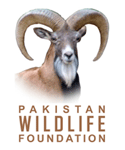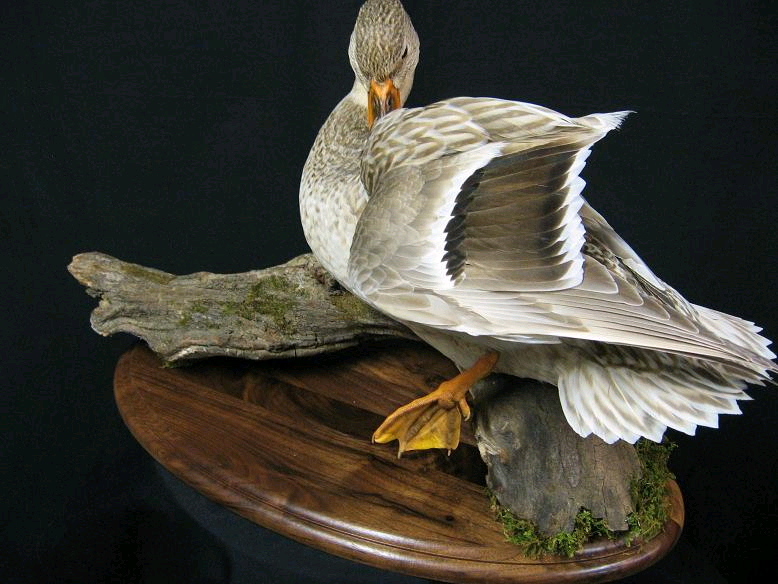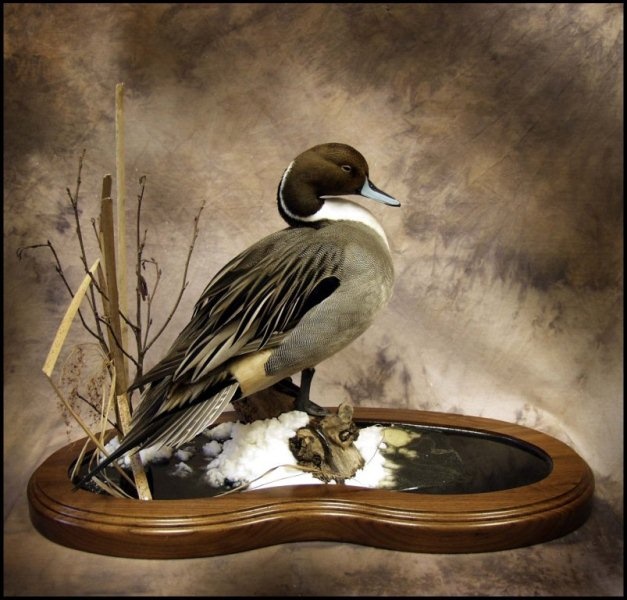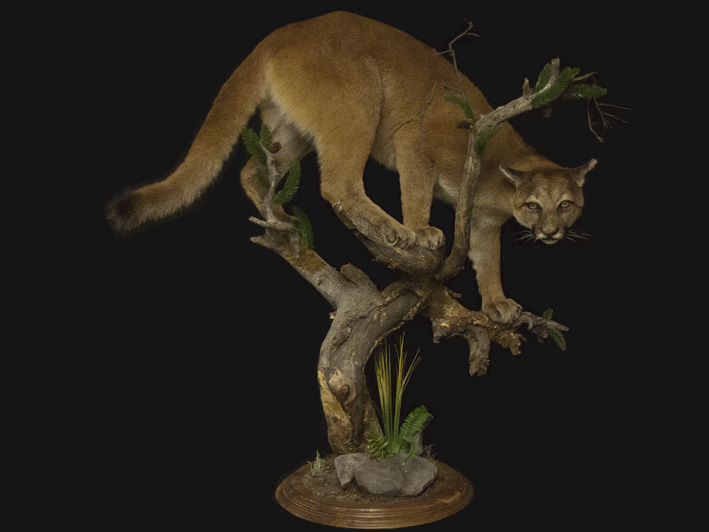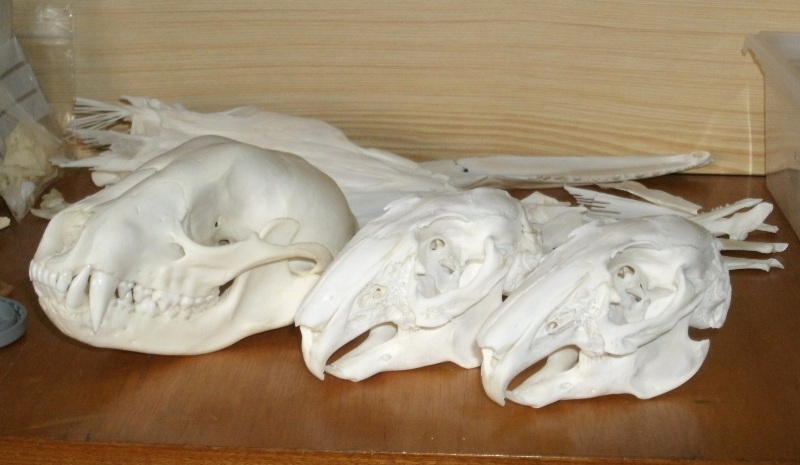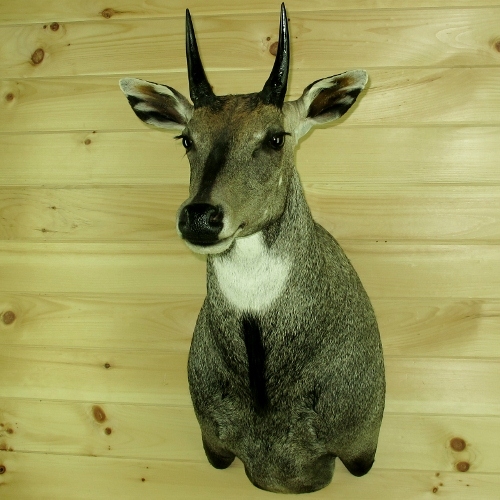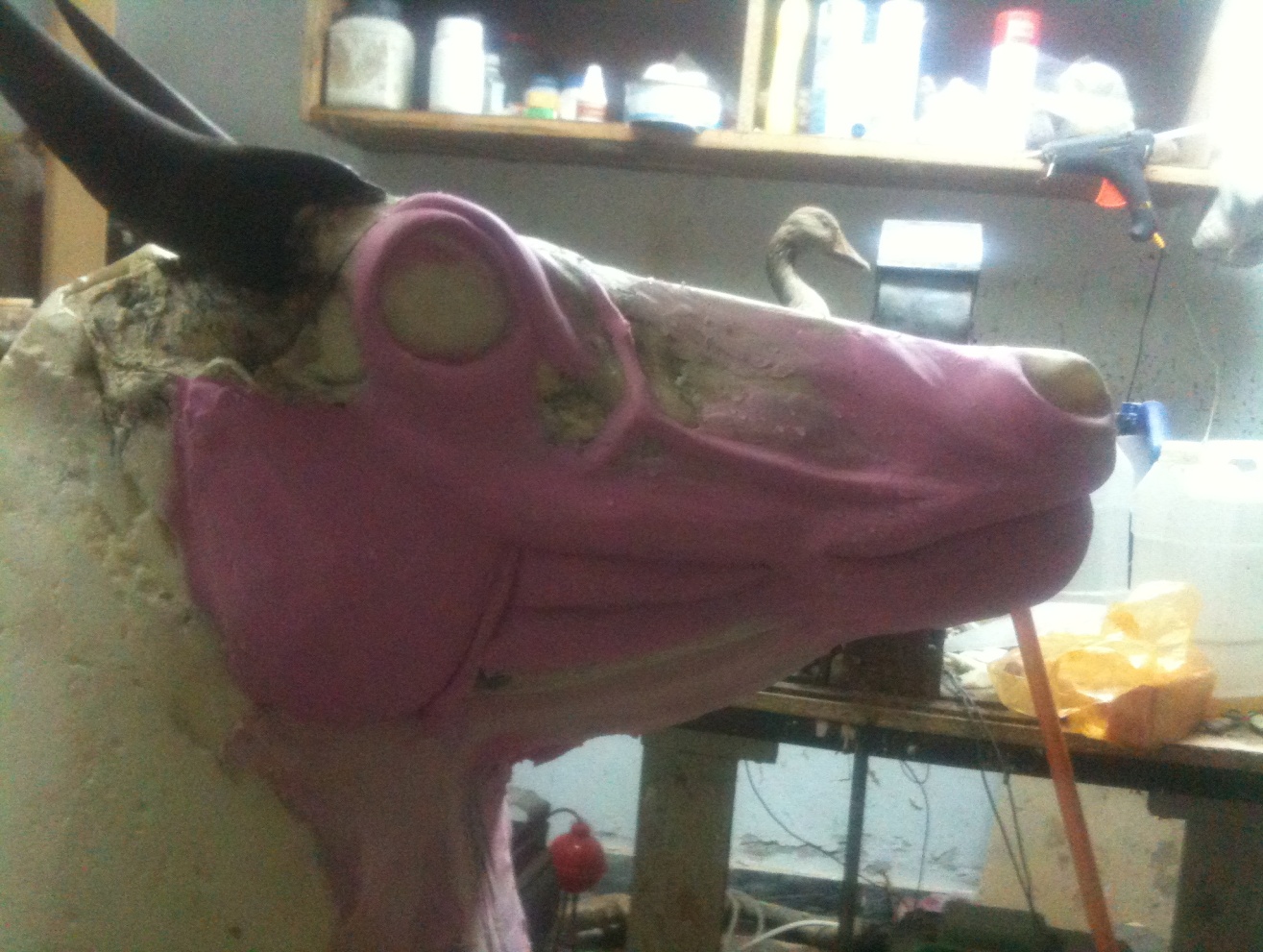BASIC SKILL LEARNING IN
TAXIDERMY AND NATURAL HISTORY MUSEUM DEVELOPMENT
(A 5-day Training Course)
Click to download brochure
Taxidermy is an art of preparing, stuffing and mounting the skins of animals especially vertebrates for display and other sources of study. Taxidermy can be done on all vertebrate species of animals, including mammals, birds, reptiles, amphibians and fish.
Taxidermy is a source of information and awareness raising about biodiversity and portraying the ecological role of different species. It helps in preparation of dead animals for education, scientific data base maintenance and reference material in scientific studies. It is the base of Natural History Museum Development. Taxidermy is also a source of income for the trained persons as they can get jobs in Natural History Museums as curators, assistant curators or taxidermists. Taxidermists can also earn through practicing this art for making trophies for hunters.
Pakistan Museum of Natural History (PMNH) jointly with Pakistan Wildlife Foundation is organizing a 5-day training workshop on Taxidermy and Natural History Museum Development from September 2-6, 2013 at Pakistan Museum of Natural History, Garden Avenue, Shakar Parian, Islamabad.
Course Objectives:
The objectives of this basic course are to educate and train the persons associated with and interested in natural history museums, animal preservation and stuffing and taxidermy techniques.
Course Duration:
Five days from Monday to Friday (September 2-6, 2013)
Course Timings:
9:00 am to 5:00 pm (Monday to Thursday)
9:00 am to 11:00 am (Friday)
Venue:
Pakistan Museum of Natural History, Garden Avenue, Shakar Parian, Islamabad
Participants:
Officials of natural history museums, zoological gardens, wildlife departments, conservation organizations, students, nature lovers, artists and hunters
No. of Participants: 30
Instructors for Technical Sessions (Taxidermy):
- Dr. Khalid Mehmood, Curator, Zoological Science Division, PMNH, Islamabad
- Mr. S. H. H. Jaffery, Pakistan Wildlife Foundation, Islamabad
- Mr. Nasim Ahmad Khan, Senior Taxidermist, PMNH, Islamabad
- Mr. Saqlain Haider, Pakistan Wildlife Foundation, Islamabad
Resource Persons for Plenary Sessions:
- Dr. Muhammad Rafique, ZSD, PMNH, Islamabad
- Mr. Naeem Ashraf Raja, Director Biodiversity, Climate Change Division, Islamabad
- Mr. Umeed Khalid, Conservator of Wildlife, Climate Change Division, Islamabad
- Dr. Maqsood Anwar, Department of Wildlife Management, AAU, Rawalpindi
- Mr. Safwan Shahab Ahmed, Pakistan Wildlife Foundation, Islamabad
- Mr. Waseem Ahmad Khan, Pakistan Wildlife Foundation, Islamabad
Note: Besides stuffing and taxidermy art, the participants will be educated about wildlife of Pakistan. During five days training, five basic groups of wildlife will be covered including Fishes, Amphibians, Reptiles, Birds and Mammals. On each of the five days during first one and a half hour, there will be two lectures / presentations about one group followed by a question & answer session about that particular group. In this way, basic information about the vertebrate wildlife fauna of Pakistan will also be conveyed to the participants.
COURSE CONTENTS
- Definition, history and evolution of taxidermy
- Techniques of preserving birds and mammals
- Care of specimens prior to mounting
- Tanning (Leather Making)
- Life of mounted bird or mammal
- Importance of animal preservation
- Materials and chemicals used in animal preservation
- Physiology and mode of action of different chemicals / preservatives used in Taxidermy
- Techniques for collection and preservation of invertebrates
- Techniques of collection and preservation of fishes
- Techniques of collection and preservation of amphibians and reptiles
- Importance of taxidermy in scientific studies and preparing mammalian study skins
- Role of Natural History Museums in scientific research
- Fishes of Pakistan; distribution, status, threats and conservation measures
- Amphibians of Pakistan; distribution, status, threats and conservation measures
- Reptiles of Pakistan; distribution, status, threats and conservation measures
- Birds of Pakistan; distribution, status, threats and conservation measures
- Mammals of Pakistan; distribution, status, threats and conservation measures
COURSE DEMONSTRATIONS
- Demonstration of taxidermy of small mammals and birds
- Demonstration of museum display techniques
- Demonstration of replica making of fish specimen and display in original colors
- Demonstration of invertebrate preservation techniques (butterflies, insects and crustaceans)
- Demonstration of field preservation techniques for taxonomic studies of small mammals, birds, reptiles, fish, butterflies and other insects
- Demonstration of skeleton making, bleaching and articulation
- Skinning techniques for birds and mammals
- Carcass Casting (Mold Making) for birds and mammals
- Mannikin Preparation
- Preserving mammalian skins
- Mounting and grooming
REGISTRATION FEE
For students: Rs. 3,000
For general public & professionals: Rs. 5,000
Last Date for Registration: August 25, 2013
REGISTRATION PROCEDURE
- Download the registration form (click here)
- Pay the registration fee through Pay Order or Demand Draft in favor of Pakistan Museum of Natural History
- Send the completed form along with the Pay Order / Demand Draft at;
Dr. Muhammad Rafique, Director, Zoological Science Division
Pakistan Museum of Natural History, Garden Avenue, Shakarparian, Islamabad
Phone: 051-9252268, 0345-5462287
For Further Information please contact:
1. Dr. Muhammad Rafique, Director, Zoological Science Division, Pakistan Museum of Natural History, Shakarparian, Islamabad at; 051-9252268, 0345-5462287
2. Dr. Khalid Mehmood, Curator, Zoological Science Division, Pakistan Museum of Natural History, Shakarparian, Islamabad at; 051-9252084, 0333-5410746
3. Mr. Safwan Shahab Ahmed, Biodiversity Specialist, Pakistan Wildlife Foundation, Islamabad at; 051-2223019, 0300-5331013
OR Email at: taxidermy.training@gmail.com
Note:
- Working lunch and tea will be served to the participants by the organizers during the training
- No TA & DA will be paid to any participant
- No accommodation will be provided to the participants
